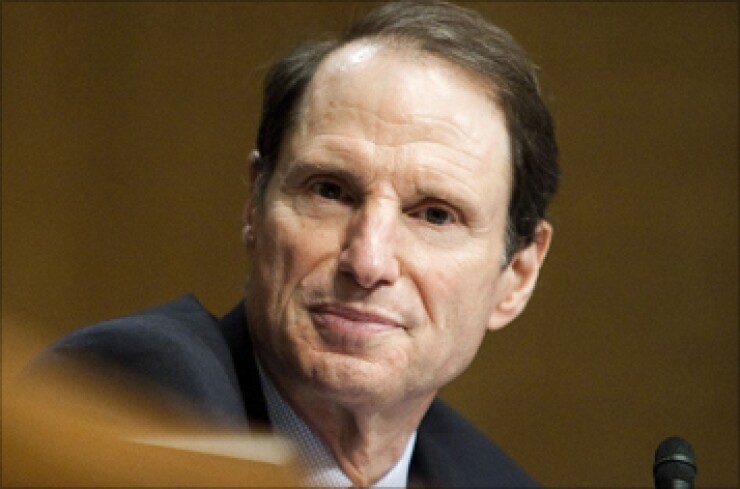
DALLAS — Senate Finance Committee Chairman Ron Wyden said Thursday he and ranking GOP member Sen. Orrin Hatch, R-Utah, will work with Rep. Dave Camp, R-Mich., chairman of the House Ways and Means Committee, on a bipartisan six-month patch for the depleting Highway Trust Fund.
Wyden, D-Ore., said the amended $7.6 billion stopgap plan he outlined to the finance committee should keep the highway fund solvent for six more months, giving Congress time to agree on a long-term transportation bill.
The focus of his measure, Preserving America's Transit and Highways Act or PATH, is on keeping the Highway Trust Fund solvent until January, he said.
Without quick action by the House and Senate to bolster the fund, states could see their federal reimbursements for highway projects delayed as early as late July if the HTF drops to a critical $4 billion threshold, Wyden said.
"It is not possible to develop a long-term solution in three weeks," he said. "This is crunch time for transportation."
The Finance Committee will meet again during the week of July 7 to consider amendments arising out of the negotiations with Camp, Wyden said.
"We'll reach out to Chairman Camp to see how the House plans to fund its highway bill," Wyden said.
Late Wednesday night negotiations between Wyden and Hatch staffers resulted in changes in the chairman's original $9 billion proposal. Wyden agreed to remove a provision doubling the heavy vehicle use tax, which had been expected to generate $1.3 billion over 10 years.
The House panel will also consider a temporary highway funding bill the week of July 7, Camp said.
"I am looking at policies that have a history of bicameral, bipartisan support, and I intend to have the Ways and Means Committee ready to act early in July," he said.
In a statement released before the heavy vehicle tax increase was removed from Wyden's proposal, Camp said he was disappointed at its partisan leanings.
"Simply put, there is no way tax hikes to pay for more spending will fly in the House," Camp said.
Hatch, R-Utah, will be the lead contact with Camp in coordinating funding for a short-term highway bill, Wyden said. Camp has agreed "to work with us on this endeavor," Hatch said.
The discussion will avoid highly contentious issues that divide the parties, Wyden said, as well as what he called "accounting gimmicks" in favor of finding a middle ground that both can accept.
"This is prime terrain," he said. "There is not time for the parties to go to their corners and battle this out."
The key is developing a solution that is acceptable to members of both parties in both chambers, Hatch said.
"This means real cuts to wasteful and low-priority spending must be included," Hatch said.
"Being that our ultimate goal is to produce a bill that the President will sign, we must work with House leaders going forward," he said. "We have to get it right."
Sen. Tom Carper, D-Del., said when the committee reconvenes after the July 4 recess he will propose a 12 cent per gallon increase in the federal gas tax of 18.4 cents per gallon and diesel tax of 24.4 cents.
The tax would go up 4 cents a year for three years, he said, with future increases linked to the inflation rate. The higher rate would restore the purchasing power of the gasoline tax to what it was in 1993, Carper said, the last time Congress raised it.
Another funding idea will be offered by Sen. Sherrod Brown, D-Ohio.
Tightening workplace regulations to restrict employers from avoiding payroll taxes and benefits by classifying workers as independent contractors rather than full-time employees would generate $5.7 billion over 10 years, Brown said.





